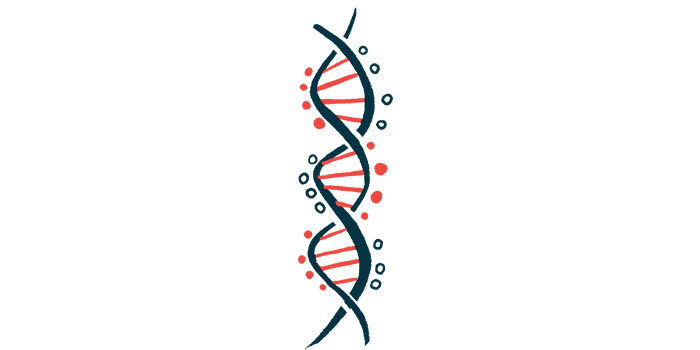Canadian Agency Favors Zolgensma Only for Babies Up to 6 Months Old

The Canadian Agency for Drugs and Technologies in Health (CADTH) will not recommend reimbursement for Zolgensma in children with spinal muscular atrophy (SMA) who are more than 6 months old, citing insufficient evidence of efficacy and safety in older patients.
“Other countries are providing guidance and funding based on same evidence. Doctors and patients need guidance from a capable assessor,” the Canada Organization for Rare Disorders (CORD) said in response posted on Twitter. “If CADTH can’t figure out what to do, maybe it should step aside and let someone else do the job.
“This ‘lack of guidance’ reaffirms why Canada needs a national Rare Disease Drug Strategy as soon as possible.”
CADTH, an independent and nonprofit organization that provides evidence-based advice to health policymakers about the use of medicines in Canada, recently recommended reimbursement for symptomatic or asymptomatic children up to 180 days of age (6 months) with confirmed genetic evidence of mutations in the SMN1 gene, the underlying cause of SMA.
Eligible patients must also have three or fewer copies of the SMN2 gene, which can compensate for the loss of SMN1, and not need permanent ventilation or feeding support.
A one-time gene therapy, Zolgensma is infused into the bloodstream (intravenously) and works to deliver a functioning copy of the SMN1 gene. The treatment is approved in the U.S. and Japan for patients under the age of 2, and conditionally approved in Europe for patients who weigh 21 kg (about 46 lbs) or less with type 1 SMA or with three or fewer SMN2 gene copies.
Zolgensma entered the U.S. market carrying a list price of $2.125 million.
Its use was approved by Health Canada in December 2020 for children with mutations in both copies of the SMN1 gene and three or fewer SMN2 copies or infantile-onset SMA, but that decision does not address therapy reimbursement.
CADTH noted that because newborn genetic screening programs for SMA are not currently available across Canada, a child may be diagnosed after 6 months of age.
CADTH had been asked by various parties — including the pan-Canadian Pharmaceutical Alliance, a cross-country organization that collaborates to manage access to therapies — to develop case-by-case criteria for SMA patients older than 6 months who may benefit from Zolgensma until newborn screening programs become widely available.
Based on the request, the CADTH reviewed existing evidence with input from an expert panel of four Canadian specialists with experience in diagnosing and managing SMA.
Evidence was insufficient to identify patients, 6 months to 2 years old, most likely to benefit from Zolgensma or that might inform treatment and reimbursement decisions, CADTH reported.
Data supporting the gene therapy comes from the START (NCT02122952), STR1VE-US (NCT03306277), and STR1VE-EU (NCT03461289) clinical trials that included patients up to 6 months of age. Additionally, the SPR1NT trial (NCT03505099) evaluated pre-symptomatic infants up to 6 weeks of age.
The expert panel indicated that extrapolating trial data to older patients was inappropriate, given the mechanism of action and the variability in disease progression. By 6 months of age, untreated patients with infantile-onset SMA type 1 would already have irreversible neurological injury. Children with such severe disease are less likely to benefit from gene therapy.
Case-by-case decisions for older infants and toddlers must be made based on anecdotal evidence, which can be divisive, the experts said. They recommended further clinical studies to assess Zolgensma in older SMA patients.
The panel also noted that two therapies approved in Canada — Spinraza (nusinersen) and Evrysdi (risdiplam) — are available to SMA patients older than 6 months and supported by clinical studies.
The panel also found no robust evidence to recommend Zolgensma to those being treated with either Spinraza or Evrysdi. Because both Zolgensma and Spinraza are designed to increase the amount of SMN protein, there was no evidence to suggest that those who failed to respond to Spinraza were likely to benefit from Zolgensma.
The request also included recommended guidelines to assess response to Zolgensma in older SMA patients. The panel stated that response would depend on the patient’s age and motor function prior to treatment. Outcome measures may include the Children’s Hospital of Philadelphia Infant Test of Neuromuscular Disorders (CHOP INTEND), Hammersmith Infant Neurological Examination (HINE), and the Hammersmith Functional Motor Scale Expanded (HFMSE).
The primary outcome would be motor function, plus other outcomes such as lung function, bulbar function, and survival. Pre-symptomatic patients would be expected to achieve developmental milestones similar to healthy infants in the same age range. For those with more advanced disease, stability would be a meaningful outcome.
However, the experts also mentioned that measures such as CHOP, HINE, and HFMSE were specifically designed for clinical trials, administered by those with specialized training, and may not be feasible in common clinical settings.
A newly opened Phase 3b trial of Zolgensma, called SMART (NCT04851873), is evaluating the gene therapy in up to 24 children with symptomatic SMA weighing 8.5 to 21 kg (about 18 to 46 lbs) and 3 months of age or older. SMART is expected to conclude in August 2023.
The post Canadian Agency Favors Zolgensma Only for Babies Up to 6 Months Old appeared first on SMA News Today.

